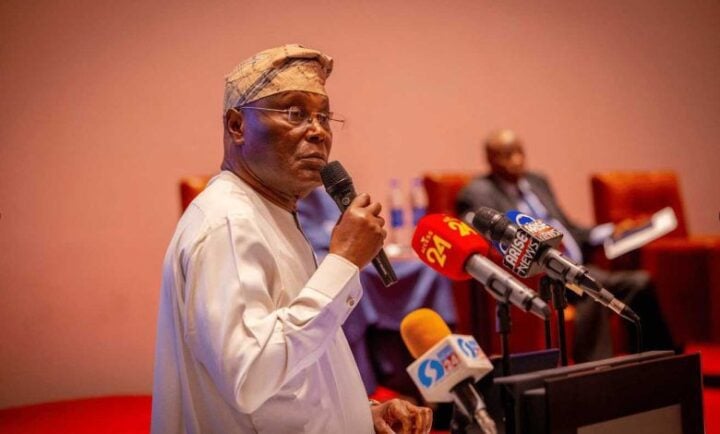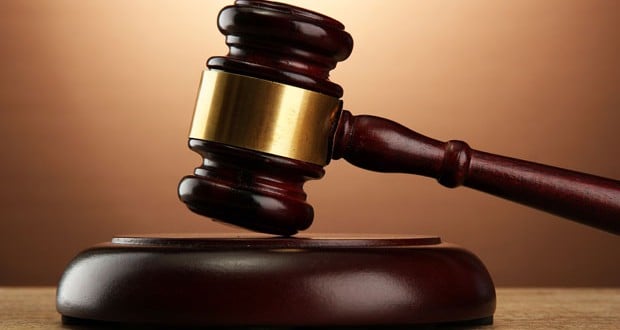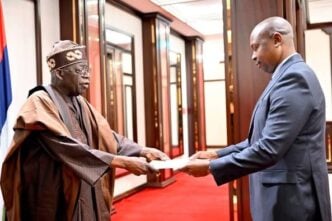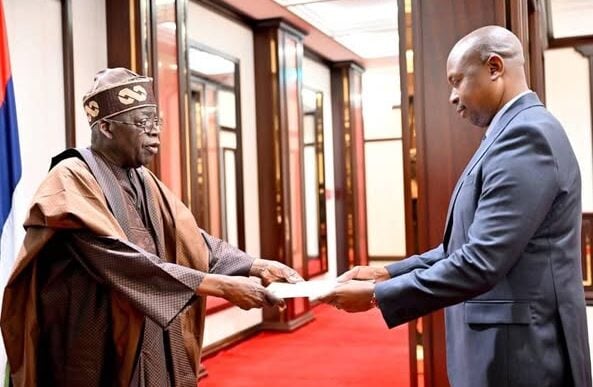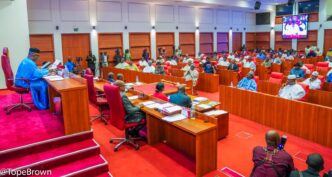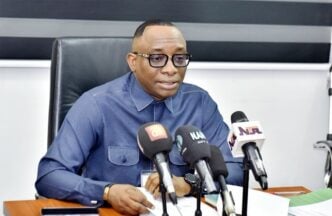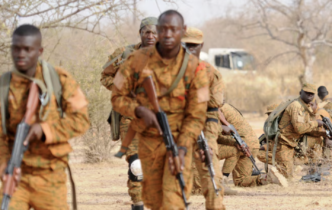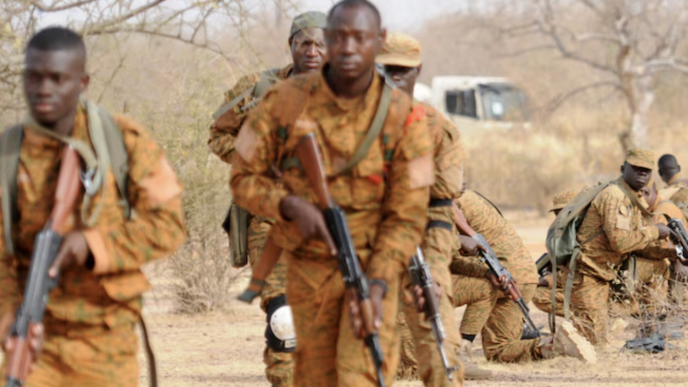Former Vice-President Atiku Abubakar | File photo
Former Vice-President Atiku Abubakar has claimed that he and then-President Olusegun Obasanjo swiftly ended Boko Haram’s activities “within a few weeks in 2002”.
Abubakar served as vice-president from 1999 to 2007 under Obasanjo, who led Nigeria during the fourth republic after the end of military rule.
Speaking in Abuja on Wednesday during a visit by stakeholders from Kogi east senatorial district led by Simon Achuba, former Kogi deputy governor, Abubakar attributed the early success against insurgents to strong political will.
In a video of the meeting shared on his X page, the former vice-president claimed that Boko Haram first appeared in Yobe state in 2002, prompting Obasanjo to consult him on a response.
Advertisement
“I have taken note of some of the issues you have raised. I am bewildered by this issue of security. There have been a number of debates about the cause of this insecurity,” Abubakar said.
“Some people argue that it is being promoted from within; others say from outside. But what I can testify to is that there is a very, very unserious attitude by our government.
“You remember when Boko Haram started? It was actually in 2002. We were in office, and the president sent for me. It started in Yobe, actually.
Advertisement
“And I said, ‘Mr President, let’s call the service chiefs and give them a deadline. If they cannot put it down, then they should put down their uniforms and go away.
“He called the service chiefs—I was there—and gave them marching orders. Within a few weeks, they put down the insurgency in Yobe. It never came up again till we left office.”
Abubakar blamed successive leaders’ indecisiveness for Boko Haram’s later resurgence, stating that their failure to take firm action allowed the group to regain strength over time.
“One thing I would say is that there is a lack of political will. When they are killing your citizens, how you can even eat and not give a damn is the greatest irresponsibility by any political leader anywhere,” he said.
Advertisement
“I hold our leadership responsible for all this insecurity that is going on across the country. Firstly, we are under-policed.
“We do not have enough police officers in this country. We have so many educated and unemployed individuals—why can’t they be recruited into the police?”
Abubakar added that as leaders of various communities and members of a coalition involving major political parties, his visitors must unite against an inefficient government.
For over a decade, Boko Haram wreaked havoc in Nigeria, killing thousands of Nigerians and displacing others, especially in the north-east.
Advertisement
Boko Haram started in 2002 in Maiduguri, capital of Borno, as an Islamist group founded by the late Mohammed Yusuf, initially focusing on religious teachings and establishing a base of followers.
In July 2009, Boko Haram launched coordinated attacks across Bauchi, Maiduguri (Borno), Potiskum (Yobe), and Wudil (Kano), resulting in nearly 1,000 deaths, including both civilians and security personnel.
Advertisement
The violence escalated when Nigerian forces captured and summarily executed Boko Haram’s leader Yusuf in Maiduguri, intensifying the group’s insurgency under new leadership.
Advertisement
